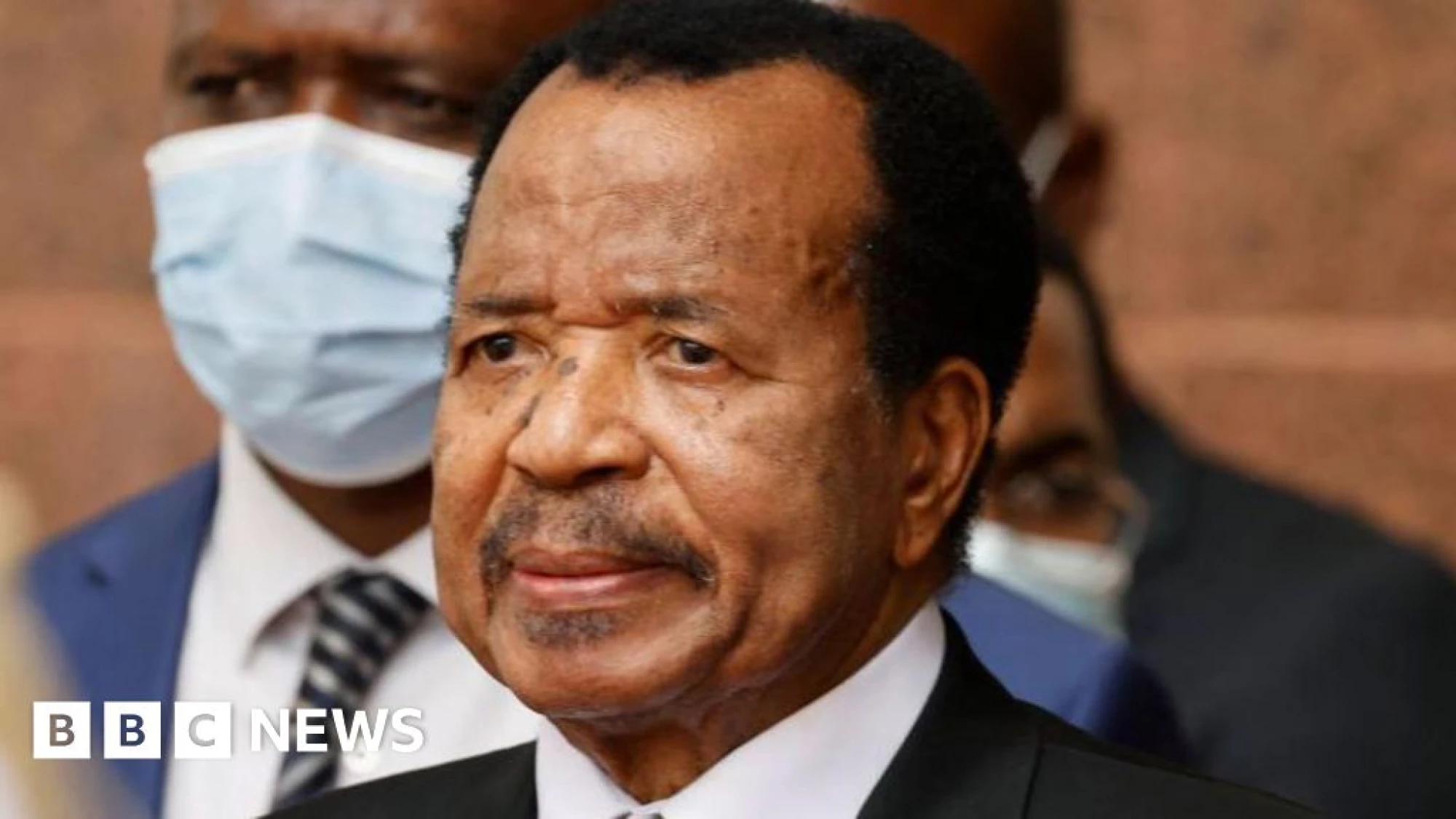Why African leaders like Cameroon's President Paul Biya hides his health

There is a long history of African leaders hiding or lying about their health to keep rivals at bay.
British Broadcasting CorporationWatchHomeNewsUS ElectionSportBusinessInnovationCultureArtsTravelEarthVideoLiveHomeNewsIsrael-Gaza WarWar in UkraineUS & CanadaUKUK PoliticsEnglandN. IrelandN. Ireland PoliticsScotlandScotland PoliticsWalesWales PoliticsAfricaAsiaChinaIndiaAustraliaEuropeLatin AmericaMiddle EastIn PicturesBBC InDepthBBC VerifyUS ElectionElection pollsKamala HarrisDonald TrumpJD VanceTim WalzSportBusinessExecutive LoungeTechnology of BusinessWomen at the HelmFuture of BusinessInnovationTechnologyScience & HealthArtificial IntelligenceAI v the MindCultureFilm & TVMusicArt & DesignStyleBooksEntertainment NewsArtsArts in MotionTravelDestinationsAfricaAntarcticaAsiaAustralia and PacificCaribbean & BermudaCentral AmericaEuropeMiddle EastNorth AmericaSouth AmericaWorld’s TableCulture & ExperiencesAdventuresThe SpeciaListEarthNatural WondersWeather & ScienceClimate SolutionsSustainable BusinessGreen LivingVideoLiveLive NewsLive SportHomeNewsUS ElectionSportBusinessInnovationCultureArtsTravelEarthVideoLiveAudioWeatherNewsletters'You can't show weakness' - why African leaders maintain secrecy around their healthAFPCameroon's President Paul Biya has been in power since 1982Rumours of ill-health have engulfed two African presidents in recent weeks, sparking contrasting responses and exposing how the wellbeing of leaders is often treated as a state secret.
It started with Cameroon's President Paul Biya, 91, whose ministers denied that he was sick, insisting he was in “excellent health”. However, the media in Cameroon was then banned from reporting on his condition.
Then, Malawi’s state house rebuffed gossip that President Lazarus Chakwera was unwell by posting videos of the leader jogging and doing press-ups in the capital, Lilongwe.
“You have to reflect a certain kind of man to dominate in politics - you can't show weakness or vulnerability,” says Oxford University associate professor in African politics, Miles Tendi, of the pomp and secrecy that surrounds African leaders and their health.
Chakwera and Biya used very different approaches to tackle the rumours about illnesses, but they had a similar intent - to project, and protect, an image of strength and virility.
https://www.bbc.com/news/articles/ce3w73n8dqdo
Rating: 5